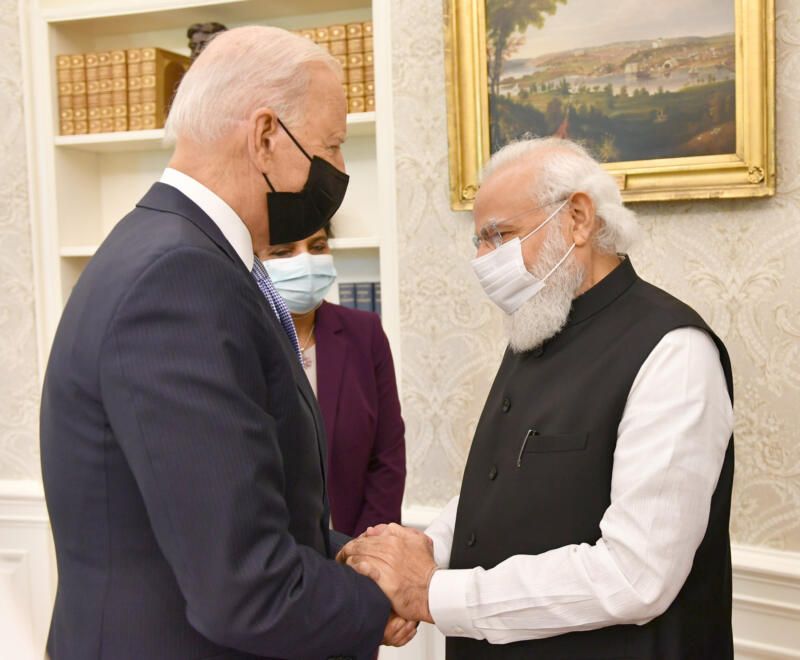Indian Prime Minister Meets U.S. Leadership and Business Heads
President Joe Biden greets Indian Prime Minister Narendra Modi to a Bilateral Meeting at White House, in Washington D.C., Sept. 24. (PIB)
Indian Prime Minister Narendra Modi had a warm and productive meeting with President Joe Biden on Sept. 24. The leaders took the opportunity to review the India-US Comprehensive Global Strategic Partnership and potential for strengthening bilateral cooperation further.
The leaders welcomed the forthcoming bilateral dialogues in various sectors, including the annual 2+2 Ministerial Dialogue of Foreign and Defense Ministers, which would identify priorities for future.
The two leaders discussed the COVID-19 situation and ongoing U.S.-India collaboration to contain the pandemic. In this context President Biden appreciated India’s ongoing vaccination efforts, and our global outreach to provide COVID assistance.
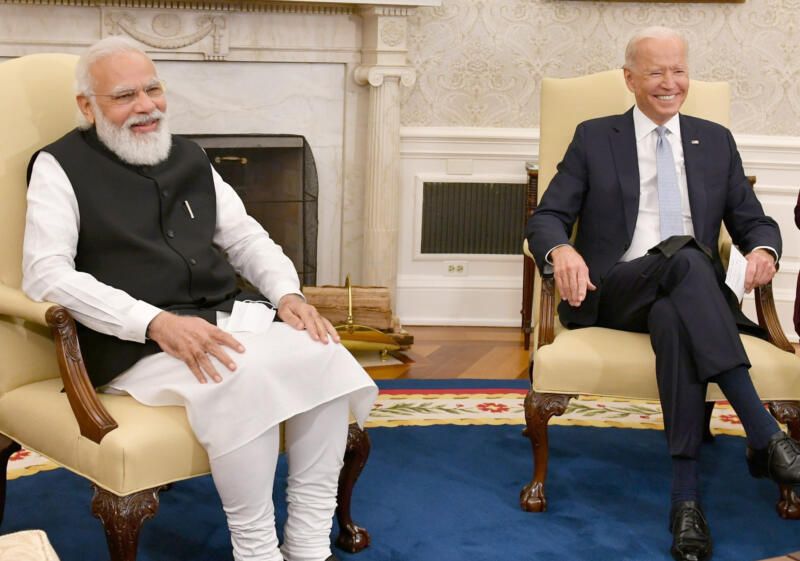
Recognizing that there was immense scope for further enhancing bilateral trade, both leaders agreed that the next Trade Policy Forum would be convened later this year to identify measures which would boost commercial linkages.
Under the U.S.-India Climate and Clean Energy Agenda 2030 Partnership, they agreed to accelerate clean energy development and deployment of critical technologies.
Acknowledging the large Indian diaspora in the U.S., Prime Minister Modi also highlighted the importance of people-to-people ties between the two nations and the mutual benefits of facilitating mobility and expanding higher education linkages.
The Leaders exchanged views on regional developments in South Asia, including the situation in Afghanistan, and reiterated their shared commitment to work together to counter global terrorism; and condemned cross-border terrorism. They called on the Taliban to adhere to their commitments, respect the human rights of all Afghans, and allow unhindered humanitarian assistance to Afghanistan. Given their long-term commitment to the Afghan people, both leaders agreed that the U.S. and India would continue to closely coordinate with each other and their partners towards an inclusive and peaceful future for all Afghans.
The Leaders also exchanged views about the Indo-Pacific region, and reaffirmed their shared vision for a free, open and inclusive Indo-Pacific region.
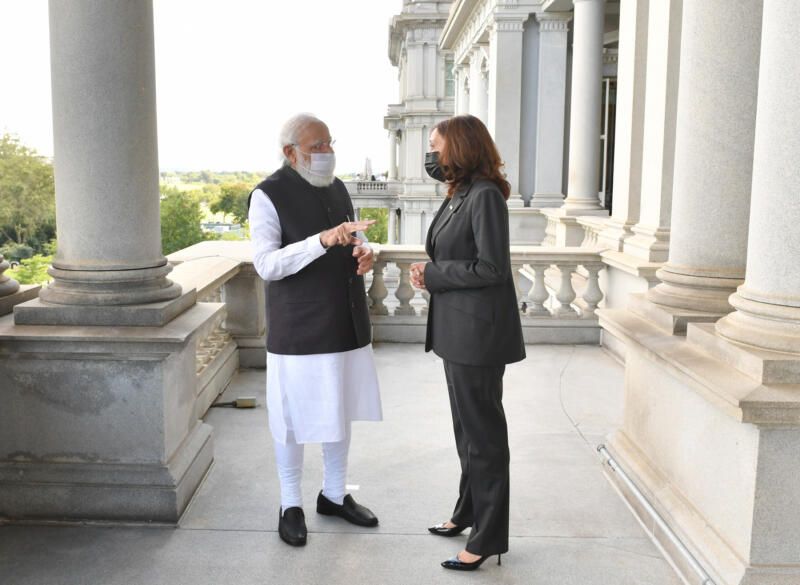
Prime Minister Narendra Modi also met Vice President Kamala Harris in Washington, D.C., Sept. 23.
They exchanged views on recent global developments, including in Afghanistan and reaffirmed their commitment towards a free, open and inclusive Indo-Pacific region.
The two leaders discussed the COVID-19 situation in their respective countries, including ongoing efforts to contain the pandemic through expedited vaccination efforts, and ensuring supply of critical medicines, therapeutics and healthcare equipment.
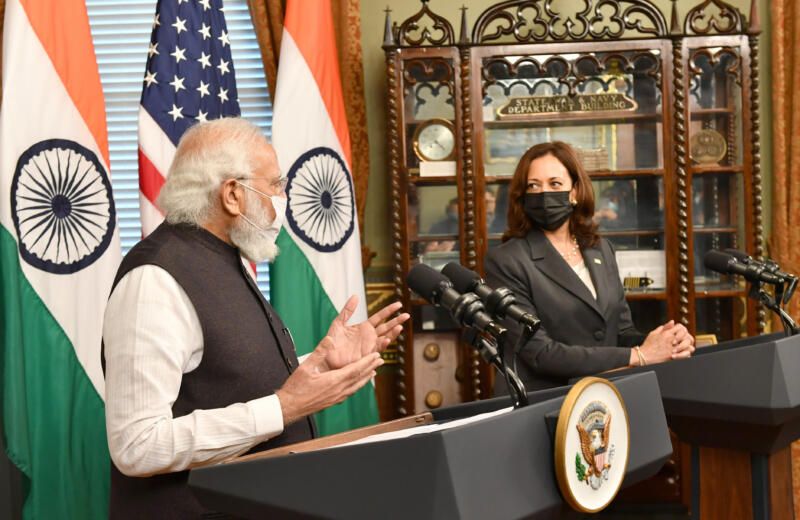
Both sides acknowledged the importance of collaborative action on climate change. Prime Minister spoke about India’s push for increasing renewable energy and the recently launched National Hydrogen Mission. He also emphasized the importance of lifestyle changes to promote environmental sustainability.
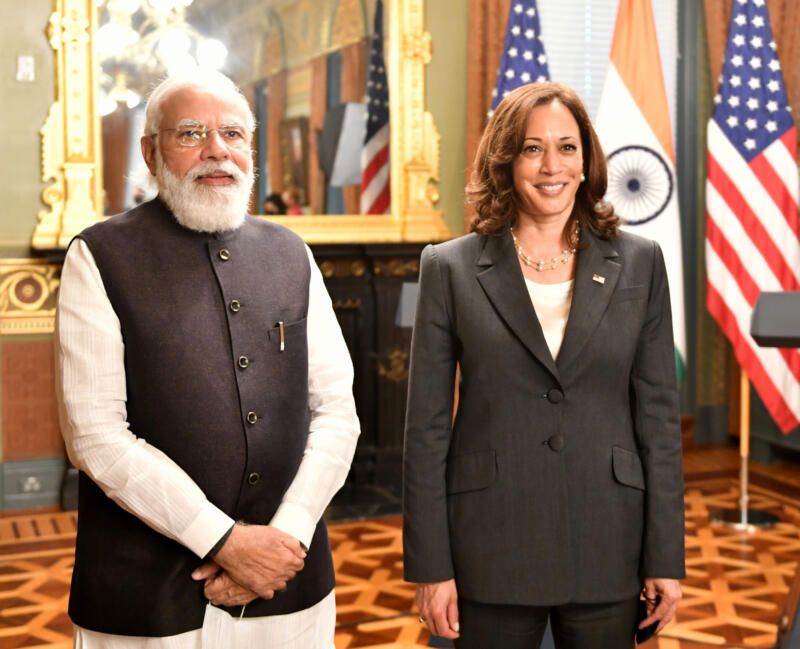
They also discussed areas of future collaboration, including space cooperation, Information Technology, especially emerging and critical technologies, as well as the cooperation in healthcare sector. Both leaders acknowledged the vibrant people-to-people linkages as the bedrock of the mutually beneficial education linkages and the flow of knowledge, innovation and talent between our two countries.
Modi met business leaders from different industries – Stephen Schwarzman, Chairman, CEO and Co-Founder of Blackstone; Cristiano Amon, CEO of Qualcomm; Shantanu Narayen, President and CEO of Adobe; Mark Widmar, CEO of First Solar; and Vivek Lall, CEO of General Atomics Global Corporation.
At the meetings held Sept. 23, in Washington, D.C., the Indian Prime Minister discussed various opportunities India had to offer to the U.S. corporations for doing business in India.
